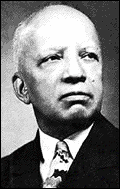I love African-americans. I love black people. I really like people from all over the world, but I love black people generally and profoundly. I have been accused of being an inverse racist because I am sometimes ciritical of white Americans' insensitivity to the views of all minorities. As a minority myself, I gain so much strength and inspiration from African-Americans - from people who were treated as "less than" others merely for a pigment of skin color? That is so crazy!!! Just because of my sexual preference, I am judged as different, a freak or "less than" as well. I do not know where or when I became enamored with all things African or Afro-American, but when I was a little boy, I dreamed of Africa. I saw how beautiful the women were, how strong and noble the men were and they captured my heart and soul.
When I was a young child, I met a very dangerously insane black man at a psychiatrist's office and we spoke heart to heart. He never once tried to hurt me. It freaked out my parents and even the psychiatrist, but we connected and I was not afraid for a minute.
In high school, I had a best friend, Stacey Johnson, and never shared that I was gay. He was and never shared it either. I really loved him, but was afraid to tell him. I lost track of him and heard he got AIDS.
In college, my best friend and a woman I would have loved to be romantic with, was a beautiful black woman and she remains my best friend to date. I love her deeply. She is one of the bravest and dignified women I have ever met. I met some royalty and some pretty "well born" people that are nothing to the refined beauty of Brenda.
I spent a year in Japan in 1985 and of all the things I missed about the USA, it was the infuence of Afro-american culture - Michael Jackson was at his zenith, but Boy George reigned supreme in Japan. The music, the arts, the sports, literature, fashion and everything black I finally learned to appreciate and treasure.
Throughout my life and especially in sobriety, I see how the African-American story is all of ours, and despite being hated, marginalized, mistreated, discriminated against and take for granted, the gifts of Afro-Americans are riches beyond measure. In all the sorrow, I found hope.
The History of Black History
by Elissa Haney
Dr. Carter G. Woodson
|
Blacks Absent from History Books
We owe the celebration of Black History Month, and more importantly, the study of black history, to Dr. Carter G. Woodson. Born to parents who were former slaves, he spent his childhood working in the Kentucky coal mines and enrolled in high school at age twenty. He graduated within two years and later went on to earn a Ph.D. from Harvard. The scholar was disturbed to find in his studies that history books largely ignored the black American population-and when blacks did figure into the picture, it was generally in ways that reflected the inferior social position they were assigned at the time.Established Journal of Negro History
Woodson, always one to act on his ambitions, decided to take on the challenge of writing black Americans into the nation's history. He established the Association for the Study of Negro Life and History (now called the Association for the Study of Afro-American Life and History) in 1915, and a year later founded the widely respected Journal of Negro History. In 1926, he launched Negro History Week as an initiative to bring national attention to the contributions of black people throughout American history.Woodson chose the second week of February for Negro History Week because it marks the birthdays of two men who greatly influenced the black American population, Frederick Douglass and Abraham Lincoln. However, February has much more than Douglass and Lincoln to show for its significance in black American history. For example:
- February 23, 1868:
W. E. B. DuBois, important civil rights leader and co-founder of the NAACP, was born. - February 3, 1870:
The 15th Amendment was passed, granting blacks the right to vote. - February 25, 1870:
The first black U.S. senator, Hiram R. Revels (1822-1901), took his oath of office. - February 12, 1909:
The National Association for the Advancement of Colored People (NAACP) was founded by a group of concerned black and white citizens in New York City. - February 1, 1960:
In what would become a civil-rights movement milestone, a group of black Greensboro, N.C., college students began a sit-in at a segregated Woolworth's lunch counter. - February 21, 1965:
Malcolm X, the militant leader who promoted Black Nationalism, was shot to death by three Black Muslims.
Read more: The History of Black History Month (Famous People, Women, Facts, Leaders, Events) — Infoplease.com http://www.infoplease.com/spot/bhmintro1.html#ixzz2L6Kw3rkC
No comments:
Post a Comment